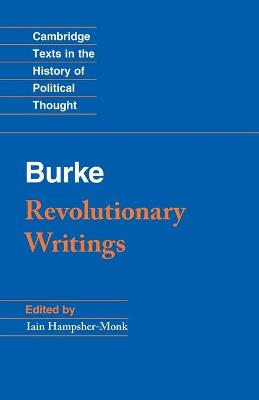Cambridge Texts in the History of Political Thought
2 total works
Burke's Reflections on the Revolution in France was the first sustained theoretical critique of the French Revolution; and is now recognised as the classic statement of modern conservatism. Reflections surveys the British political culture of traditionalism, gradualism and deference, and contrasts it with the French Revolutionaries' programme of appeal to abstract right, transformational change and popular agency. Ultimately Burke advocated a counterrevolutionary war and the restoration of the French monarchy. This accessible new edition brings together for the first time Burke's first and last published thoughts on the revolution including as it does the first Letter on a Regicide Peace; a work that has contributed to a particular view of international society. Featuring a comprehensive introduction and extensive annotations, Iain Hampsher-Monk's edition helps readers new to Burke to better understand the historical, political and philosophical context behind his writings, and the significance of contemporary and classical allusions.
This is the first collection of the writings of Edmund Burke which precede Reflections on the Revolution in France, and the first to do justice to the connections and breadth of Burke's thought. A thinker whose range transcends formal boundaries, Burke has been highly prized by both conservatives and liberals, and this new edition charts the development of Burke's thought and its importance as a response to the events of his day. Burke's mind spanned theology, aesthetics, moral philosophy and history, as well as the political affairs of Ireland, England, America, India and France, and he united these concerns in his view of inequality. In the writings in this edition Burke indicated how societies embodying revealed religion and social hierarchy could sustain civilisation and political liberty. These thoughts reached their apogee in Reflections on the Revolution in France. This edition provides the student with all the necessary information for an understanding of the complexities of Burke's thought. Each text is prefaced by a summary and notes to the texts elucidate the literary and historical references. An introduction and biographical and bibliographical essays help place these works in the context of Burke's thought as a whole.

